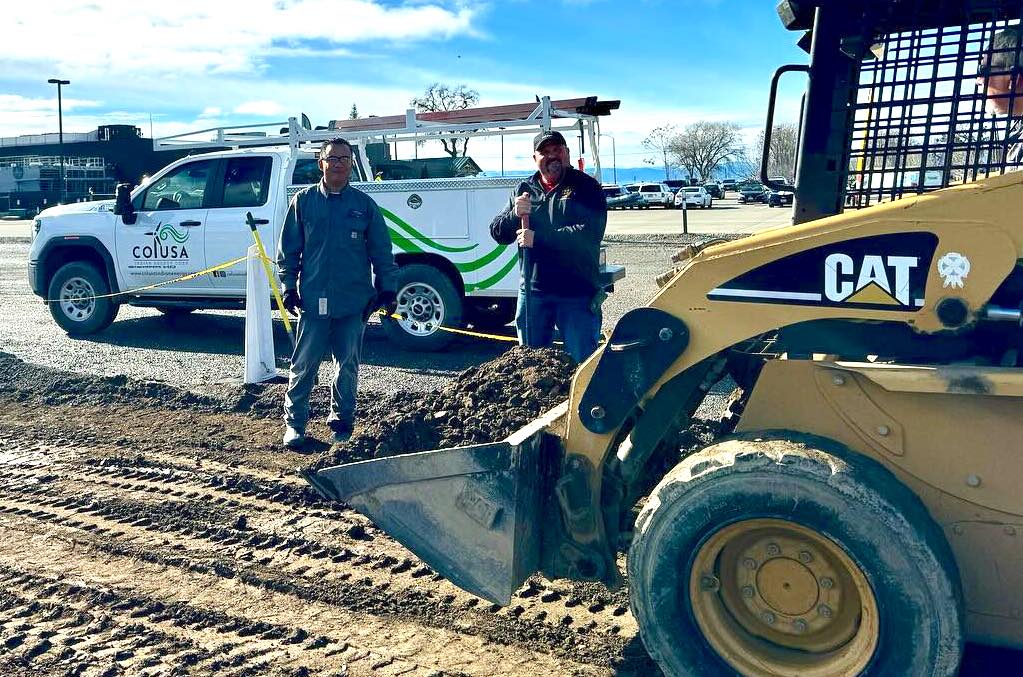
- Details
- By Chez Oxendine
- Energy | Environment
With over 50 microgrid projects across the country, Colusa Indian Energy isn’t thinking small. The tribal enterprise, owned by the Cachil DeHe band of Wintun Indians, is setting its sights on utility-scale energy development.
That ambition led COO Ken Ahmann to partner with True Family Enterprises, a California-based investor specializing in real estate, commercial goods, entertainment, and clean energy.
Finding the right partner was crucial for the tribal enterprise’s expansion plans, Ahmann told Tribal Business News. “We've had people trying to throw capital at us,” Ahmann said. “We weren't ready yet, and we wanted to wait for the right money, the right partner. There's a lot of capital that's not right for Indian Country. We connected with True, and we found out (they are) the right partner."
Their new joint venture, Colusa True Enterprises, aims to help tribes develop major energy projects that could transform reservation economies. The company offers what Ahmann called a “turnkey energy solution,” managing microgrid development from start to finish. These projects, he says, are designed to attract data centers, distribution centers, or other energy-hungry operations.
Enter True Family Enterprises. The new venture, which will remain under tribal control, leverages True Family Enterprises’ industry connections and development capital.
“True Family Enterprises can bring capital themselves, but it's really their longstanding connections to industry that we don't have, and decades of partnering deals with multinational corporations,” Ahmann said. True Family gives the venture access to funding on a scale that Colusa Indian Energy couldn't reach alone, with major investors now waiting in the wings for viable projects, he said.
 (L-R): Ken Ahmann, Twila TrueThe model is straightforward: Once partnered with a tribe, Colusa True designs and builds large-scale energy solutions using nearby available resources. The tribe and Colusa True then share profits from long-term purchasing power agreements with energy-hungry partners.
(L-R): Ken Ahmann, Twila TrueThe model is straightforward: Once partnered with a tribe, Colusa True designs and builds large-scale energy solutions using nearby available resources. The tribe and Colusa True then share profits from long-term purchasing power agreements with energy-hungry partners.
Not every tribal location is suitable — partners need substantial land, access to commercial fiber, and natural gas. For tribes with these resources, the economic benefits from long-term power purchase agreements with clients that operate data or distribution centers could “dwarf gaming revenues,” Ahmann said.
"This partnership is more than just business — it’s about empowering Tribes to reclaim their energy futures,” Ahmann said.
Twila True, CEO and Founder of True Family Enterprises, said the partnership opens her firm’s business network to tribal clients, allowing Colusa True to offer “truly unmatched solutions.”
“The need for data centers is fascinating. If tribes have the opportunity to create energy and feed something like a data center and provide data centers to the open market, it's an opportunity that they'll be very well served by,” True said in a statement. “We are leveraging the collective breadth of our networks and the depth of our experience to create real, lasting change for Tribes ready to embrace energy sovereignty.”
The venture launches at a time when interconnectivity queues, stifled energy development, and aging grid infrastructure can sometimes place available power for major infrastructure “5-10 years out,” Ahmann said. Partnering with tribes to rapidly develop economy-scale microgrids online creates attractive prospects for companies trying to get new operations up and running, he said.
Through the Colusa True partnership, Ahmann says they can now scale up projects within 24 months, thanks to ready capital and pre-committed investors.
True said quick deployment would make tribal lands competitive for data and distribution center projects. While the centers themselves create few jobs, they generate substantial capital that tribes can invest in other areas.
“I find that a lot of problems can be solved if you have a viable business that produces capital,” True said. “Then you'll have a community that can prosper from it.”
